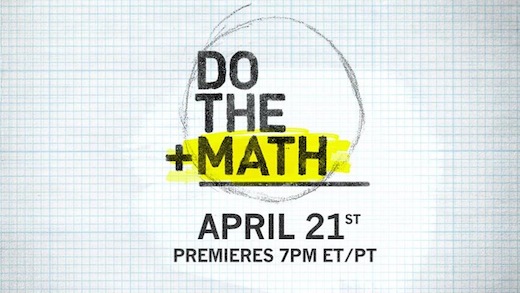
350.org has provided a 45-minute film about climate change for people all over the country. Many hundreds of house meetings were held on April 21, the night before Earth Day, all over the United States. It was followed by the webcast of panel discussions about the movement for action on climate change.
The film, entitled “Do the Math,” is based on a Rolling Stone article by Bill McKibben last year, and on a multi-city tour he took over the last few months. You can watch the film online at: http://act.350.org/signup/math-movie/ or read the original article at: http://www.rollingstone.com/politics/news/global-warmings-terrifying-new-math-20120719
The basic message of the article, tour, and film is that we only need to understand three numbers to know why action is required to address climate change.
The first number is two degrees Celsius. This is the generally agreed on international benchmark for the upper limit of how much more global warming we can cause before catastrophic changes all over the globe, before we cause irreparable and potential irreversible harm to humanity-to our agricultural, transportation, and industrial systems.
The second number is 565 gigatons of carbon dioxide. That is how much more carbon dioxide that can be emitted in the next few decades to give the world a reasonable chance of staying below those two degrees Celsius of global warming.
The third number is 2,795 gigatons. This is the amount of carbon-based fuel that the fossil fuel industries claim is still in the ground-known reserves that they base their net worth on. This is about five times higher than the total amount that can be emitted-in other words, if the oil, gas, and coal industries continue tap their known reserves without effective limits, we are on the path to drastic climate change which will challenge the existence of developed human society.
The fossil fuel industries do not pay for the pollution they are emitting into our shared atmosphere-the burning of fossil fuels is like the old factories with waste pipes pouring massive amounts of toxic waste into our waterways. The benefit for the companies is that they do not have to pay for their bad behavior, do not have to pay for the harm they are doing to all of us.
The film, and panel discussions talked about several campaigns underway to popularize the need for action on climate change and to begin to fight the financial and political power of the fossil fuel industries. One is this film itself. Another is a campaign on over 300 college campuses demanding divestment of funds from fossil fuel companies, and similar campaigns in many municipalities and states, which hold billions in pension funds. A key struggle right now is the fight against the Keystone XL pipeline, which will increase the amount of tar sands oil mined from the wilderness of Canada-exactly the wrong direction to take. There were also clips from the February demonstration in Washington, D.C., of about 40,000 people, the largest climate change demonstration thus far.
Van Jones, featured in the film alongside Bill McKibben and many others, has called for the creation of millions of living wage jobs in conservation, in developing the green energy industry, and in public projects to tackle climate change. A weakness of the film is that this crucial aspect of the struggle was mostly left out of the film, which focuses on the moral and survival reasons to fight climate change and the fossil fuel industries.
The corporations who oppose legislation to institute a carbon tax are among the corporations who oppose labor law reform, increases in the minimum wage, and public works in general. These same corporations have funded climate change denialists, and many continue to do so. The same corporations oppose closing tax loopholes that benefit corporations and the wealthy. The same corporations oppose ending taxpayer funded subsidies for oil and gas exploration.
The movement to address climate change will only be able to build a coalition broad enough to change government policy if it explicitly unites with unions, with the cause of the unemployed, with struggles for environmental justice and against environmental racism.
Watch the film, read the article, do the math, sign up for the struggle, and link it to the struggles you are already involved in. Our common future depends on it.
Photo: 350.org/FB












Comments